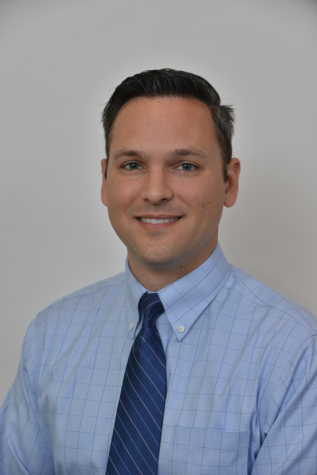Kent State economics professor analyzes policies in public spaces
February 15, 2023
In the department of economics at Kent State, one professor is using his platform to look into various subjects that he is turning into scholarly articles to share with other scholars and the public.
Professor Lockwood Reynolds received a Ph.D. in economics from the University of Michigan in 2007 and was later hired by Kent State as an associate professor. He has had research published in numerous journals and is waiting on other journals that are currently going through a reviewing process.
Reynolds’ research and teaching interests boil down to microeconomics, labor economics, public economics and the economics of education. Reynolds most recently worked on an academic article concerning the impact COVID-19 has had on collegiate students’ performance.
“Most of my research is about how to take data, use it toward answering questions around policy or to understand the magnitude and direction of effects, separate correlation from causation and come with policy implications,” Reynolds said.
Reynolds’ article, “COVID-19 Diagnoses and University Student Performance: Evidence from Linked Administrative Health and Education Data,” looks at the ways policy on cases of students who attend a large public university, but who also caught COVID-19 during the school year were impacted academically.

“[Kent State] has university policy around excused absences, but there’s nothing that says the amount of excused absences you’re allowed to have and the way that policy is constructed is the best version,” Reynolds said.
There is not enough “great data-driven” research surrounding the impact absences and missing classes can have on their educational success, Reynolds said.
Reynolds poses questions on whether to give students more flexibility on absences and course deadlines when faced with illnesses, like COVID-19. However, if given more flexibility, students may become more backed up with coursework and assignments, Reynolds said.
On the contrary, senior managerial marketing major Michael Bee said an appropriate way of attending class when faced with an illness and extensions on coursework to a certain date should be mutually agreed upon by the student and professor.
“The student should not come into class that day and have them do it online,” Bee said.
These are matters Reynolds and his colleagues, that are a part of this particular research process and article, continue to observe and discuss.
“This is not a simple question to answer,” Reynolds said. “Trying to sort correlation-causation is challenging.”
This journal is still being processed by anonymous reviewers and could take up to three years until a final approval or rejection is received. Revisions on an article may take two or three rounds taking up to almost six months each submission, Reynolds said.
In the future, Reynolds plans to look at “non-COVID” reasons, such as bereavement or related-family issues, that may result in a student missing a certain amount of time during the school year and see what policy at higher-level institutions may be enforced and amended, he said.
Reynolds has been successful in publishing articles to journals including “Employer Wage Subsidy Caps and Part-Time Work”, which was published in 2022. Reynolds and his co-authors looked at wage subsidies in federal Empowerment Zones.
Reynolds is currently on a research sabbatical this semester where he is reading and learning new programming techniques, he said.
“I’m constantly trying to learn new things because everything is always evolving,” Reynolds said.
Anthony Zacharyasz is a reporter. Contact him at [email protected].











